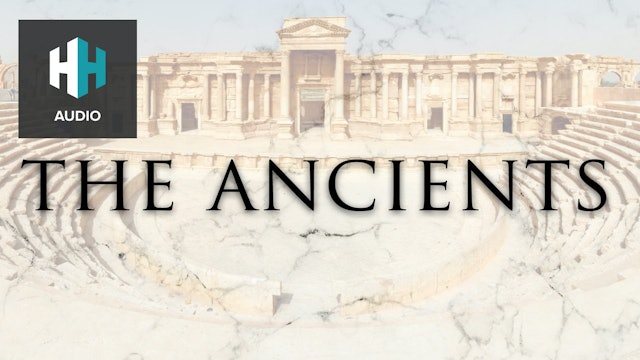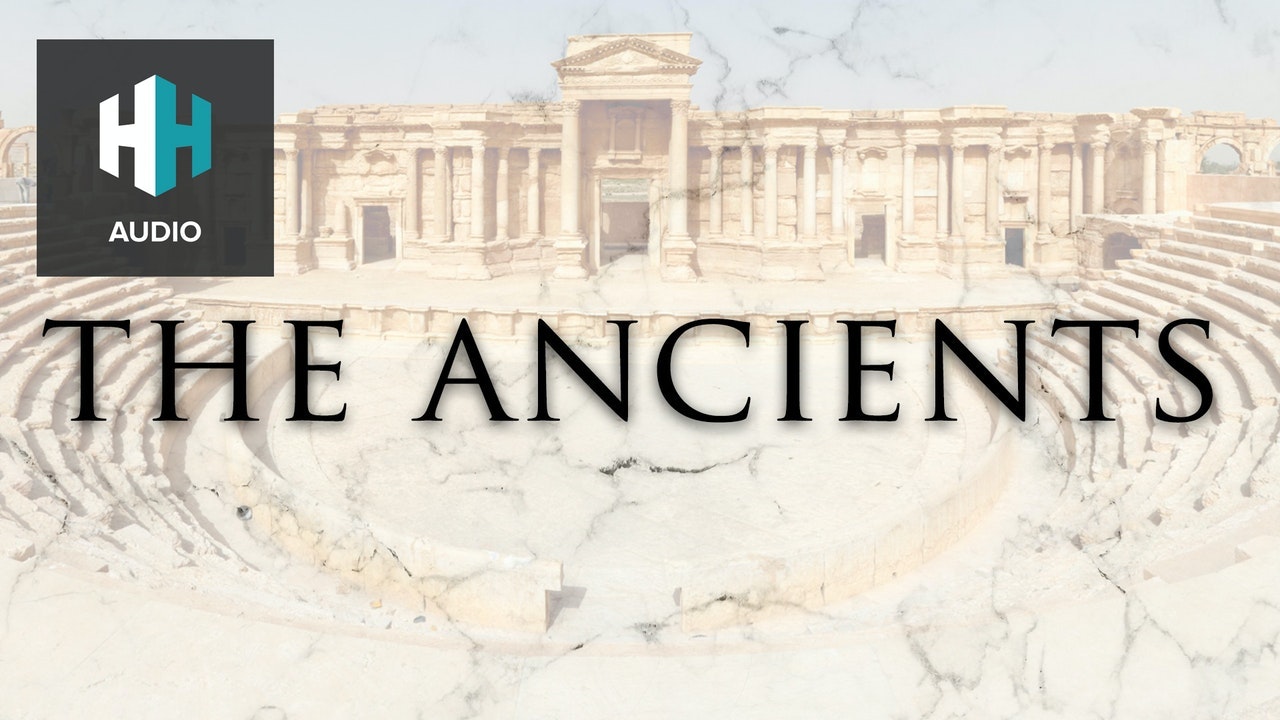🎧 The Ancients
Please note that audio podcast episodes are not uploaded to the History Hit app. Access your RSS feed instead.
To access your RSS feeds as a subscriber please visit https://www.historyhit.com/history-hit-frequently-asked-questions/.
-
🎧 The Mysterious Field of Jars
At a mysterious site in central Laos, archaeologists have uncovered thousands of stone vessels, scattered across the ground. For this episode, Tristan spoke to Dougald O'Reilly and Louise Sampson, who took part in the joint Laos-Australian expedition to the Plain of Jars. Together, they explore t...
-
🎧 The Xiongnu: History's First Nomadic Empire?
Between the 3rd century BC and the 1st century AD, the Xiongnu inhabited the area surrounding Mongolia. They influenced the later Hun Empire, and had connections with Ancient China and Persia, but what do we know about them? Bryan Miller has been investigating the society, hierarchy and expansion...
-
🎧 Jewish Burial at the Time of Jesus
According to the Gospels, Jesus died and was removed from the cross on the eve of the Jewish Sabbath (Friday afternoon), before his body was placed in the family tomb of Joseph of Arimathea. For 'three days and three nights', Jesus’s body was entombed. But do the accounts of his burial correlate ...
-
🎧 Persia's Hidden History: The Persepolis Fortification Tablets
The Persepolis fortification tablets are the who’s who of the Ancient Achaemenid Empire, a unique insight into the administrative workings of this jurisdiction emerging from present day Iran. 30,000 of these clay tablets, inscribed in cuneiform, have so far been identified. Each forms a new piece...
-
🎧 Lessons from the Antonine Plague
A plague which affects people from across society, mass exodus from city centres and numerous opinions on how best to stay well ... all familiar to people today, but also to the people of the 2nd century AD. In this fascinating chat with Dr Nick Summerton, we explore the causes and effects of the...
-
🎧 Chesters Roman Fort
Described as one of the most complete cavalry forts that survives in Britain, Chesters Roman Fort is also home to the best preserved military baths on the island. In this episode, English Heritage Curator Dr Frances McIntosh takes Tristan around the site, and explains how it can tell us more abou...
-
🎧 The Legacy of Thermopylae
Ever since its occurence in 480 BC, the Battle of Thermopylae has been the stuff of legend. Echoes of this battle, reportedly fought between a seven thousand strong Greek army and a Persian force of anywhere between 100 thousand and one million, can be found dotted across the literature and histo...
-
🎧 Roman Prisoners of War
We know all about the battles of the Roman Empire: the opposing sides, their weapons and incentives. But if history is written by the winners, what happened if you lost? In this episode, Dr Jo Ball, battlefield archaeologist at the University of Liverpool, helps to fill in this gap. Jo takes us t...
-
🎧 The Battle of Mutina: Cicero's Last Gamble
Caesar Octavian, Mark Antony, Decimus Brutus and Cicero: the Battle of Mutina, April 43 BC, was a clash of giants. It also became the beginning of the end for one of Ancient Rome’s greatest orators, Cicero. For this episode, Steele Brand came back to take Tristan through the battle, and to explai...
-
🎧The Truth About The Huns
The Huns! The name of this ancient people triggers a multiplicity of responses and evokes a number of images (nearly all of them negative). They have been portrayed as a savage people, who contributed little to world history. But is this really the case? In this podcast, Tristan was joined by Pro...
-
🎧 How Corinth Became Christian
Occupied since around 3000 BC, the Ancient city of Corinth is not unique in its transition from a Pagan, Greco-Roman state to a Christian one. What makes it stand out, however, is the incredible evidence that allows us to track this city’s journey throughout this time period, in literature, archi...
-
🎧 How the Romans Treated Eye Infections
Traditionally believed to be ‘windows to the soul’, the health of eyes in the Roman Empire could be compromised by lamentable hygiene practices, unclean public baths and dusty roads. But without modern medical remedies, how did the Romans look after their sight? Dr Nick Summerton is a practicing ...
-
🎧 The Rise of Olympia
Forget the Games, ancient Olympia’s importance stretched much further than simply being the birthplace of its namesake sporting festival. Boasting hundreds of years of history, at its height this critical sanctuary was home to some of the most stunning art and architecture in the ancient world. I...
-
🎧 Ancient Afghanistan: The Land of a Thousand Cities
Stretched along the north of the Hindu Kush mountain range and the south of the Oxus river, the history of the ancient region of Bactria envelops some of the most intriguing periods of the ancient world. The land, which now straddles parts of Afghanistan, Uzbekistan and Tajikistan, can be tracked...
-
🎧 Olympia: The Golden Age
For hundreds of years in antiquity, the sanctuary at Olympia was one of the most important religious sites in the Greek World, home to stunning art and architecture commissioned by tyrants and city-states situated across the length and breadth of the Mediterranean. And it was during the 5th and 4...
-
🎧 The Truth About King Arthur
The legend of King Arthur has been reworked many times, but is there any historical truth behind the tales? Dr Miles Russell believes there is and in this podcast he highlights how elements of King Arthur’s story derive from five key ancient figures. From British warlords that opposed the arrival...
-
🎧 Life in Ancient Polynesia
Despite sporadic food sources and the dangers of the deep sea, the remote islands of the Pacific Ocean have been home to Polynesians for more than a millennium. But what was life like for the first people to venture between Hawaii, New Zealand and Easter Island, to name a few? In this episode Chr...
-
🎧 Battle at the Granicus: Alexander's First Persian Victory
If there had been a different outcome to the Battle of Granicus, we might never have heard about Alexander the Great. Taking place in 334 BC, this was his first major victory against the Persian Empire. In this episode, Tristan is joined by Adrian Goldsworthy to discuss Alexander and his tactics ...
-
🎧 The Golden Age of Chariots
Taxis to the front line or ancient tanks? Through archaeological remains and ancient depictions, we have some idea of what these military vehicles of the ancient world looked like, but how were they ridden and what for? In this first of two conversations, Mike Loades and Tristan discuss the chari...
-
🎧 Polynesian Mythology
From creation stories to voyager journeys, mythology and oral history are often key to our identities. In this episode Christina Thompson shines a light on some fascinating tales from Polynesian mythology and explains how these tales have been received in more recent history. Christina is the aut...
-
🎧 Chariots: The Ancient Sportscar
How truthful are modern depictions of Ancient chariots? In this second episode, Mike Loades explores the reality behind the scythed chariot shown in Boudica's Westminster statue. He then draws upon his experimental archaeology to discuss the truth about racing chariots in Ancient Rome. How many h...
-
🎧 Nero: Taking to the Stage
In popular culture, Nero is thought of as the Emperor who played the fiddle as Rome burned to the ground. Whilst this might not be strictly factual, it does hint towards another side of this infamous character. For this episode, Dr Shushma Malik returns to The Ancients to discuss Nero's interest ...
-
🎧 The Battle of Himera
480 BC is a year widely-celebrated in Greek history – when Leonidas and his core of 300 Spartans heroically defended against a powerful Persian army at Thermopylae and an outnumbered, Athenian-led navy defeated a mighty Persian armada at Salamis. Yet it was not just off the coast of Athens that o...
-
🎧 Brittany: Shaped by the Atlantic
Stretching out from the north west of France, Brittany has long been as identifiable with the Atlantic Ocean as with its continental neighbours in Europe. Whilst Sir Barry Cunliffe’s research and archaeological interests have taken him far and wide over the last six decades, this close neighbour ...


























